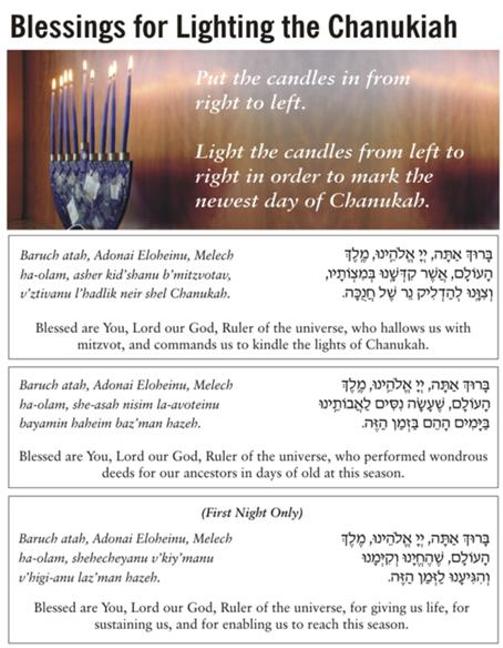When the light did not go out.

Chanukiah at Mount Herzl, Jerusalem Israel
Judea, one of the original names of the Land of Israel, has known many rulers and much desecration. Throughout history, and in spite of many attempts to destroy us, the Jewish people have endeavored to maintain the integrity of our homeland where our people and our faith was allowed to prosper. The story of Chanukah is but one of these tales...
Around 200 B.C., Judea came under the control of Antiochus III, the Seleucid Kng of Syria. In spite of the violent clash of two civilizations, Judaism and Greek Hellenism, and unlike many kings before him, he allowed the Jews who lived in Judea to continue practicing the Jewish religion. Jews lived scattered among the land and in small communities which turned Jerusalem into the center, the heart.
After years of shared civil existence among the citizens of Judea, Antiochus IV Epiphanes, proved to be less kind towards the Jews. He outlawed the Jewish religion, including any observance of the Sabbath, circumcision, kosher slaughter, and Jewish prayer in the Temple and ordered the Jews to worship Greek gods.

In 168 B.C., his soldiers attacked Jerusalem, killing thousands of people and desecrating the city’s holy Second Temple by erecting an altar to Zeus and sacrificing pigs within its sacred walls. Mothers who circumcised their sons were flung from Jerusalem’s walls to their deaths. A ninety year-old man named Eliezar was executed for his refusal to eat pork. Martyrdom became commonplace, though perhaps the most famous was that of Hannah and her seven sons, who were killed one by one before her eyes before she herself was killed.
Many Jews were seduced by the virtues of Hellenism and many feared punishment by the Greek rulers. Amidst this war against the Jewish people and the Jewish faith, an air of rebellion emerged when Mattathias, a Jewish priest, refused to sacrifice to a pagan god in the town of Modiin. Along with his five sons, they led the Jewish people in a struggle for liberation against yet another monarchy determined to destroy them. The family of Mattathias became known as the Maccabees, from the Hebrew word for "hammer," because they were said to strike hammer blows against their enemies. Jews refer to the Maccabees but the family is more commonly known as the Hasmoneans.
Like other rulers before him, Antiochus underestimated the will and strength of his Jewish adversaries and sent a small force to put down the rebellion. The extreme measures adopted by Antiochus helped unite the people.

In 164 BCE, Jerusalem was recaptured by the Maccabees and the Temple purified, giving birth to the holiday of Chanukah. Within two years the Jews had successfully driven the Syrians out of Jerusalem and set out to clean the Second Temple by rebuilding its altar and lighting its menorah—the gold candelabrum whose seven branches represented knowledge and creation and were meant to be kept burning every night.
According to the Talmud, Judah Maccabee, the son of Mattathias, and the Jewish people found a small flask which contained only enough oil to light the menorah for a day. Miraculously, the oil lit the menorah for eight days. In remembrance, a candle is lit each night during the entire Hanukkah celebration. This incredible event inspired the Jewish sages to declare the yearly eight-day festival of Chanukah, "dedication," on the 25th of Kislev כ"ה לכסלו, in honor of the re-dedication of the Jewish Temple and the renewed independence of a Jewish State.

The miracle, of course, was not that the oil for the sacred light - in a little cruse - lasted as long as they say; but that the courage of the Maccabees lasted to this day: let that nourish my flickering spirit". - Charles Reznikoff
For these reasons, we kindle lights each year and proclaim “Nes Gadol Haya Sham:” The Great Miracle Happened There to remember the day of Judah Maccabee who fought for the right to be different, to be Jews. We don’t insist that the world be Jewish, and we, in turn, will not let the world insist that we be like all other people. Similarly, we don't seek the destruction of any other nation, but for the recognition to exist in our own land as a free people.

DID YOU KNOW...?
"Judea" exists today, but the historical revisionists refer to some of it as the West Bank. The name Palestine was not bestowed upon the land until the Romans arrived, nearly 200 years later.
Tel Aviv’s Maccabi Elite Basketball Team somehow ends up playing against the Greek team in the Euroleague nearly every Chanukah. Surely this could not be mere coincidence. Does Shimon Mizrahi, the famous head of Maccabi Elite, have a hand in this modern-day miracle? Could this be The Hand of God? - Lisa Goldman
In North African countries, the seventh night of Chanukah (1st of Tevet) was set aside as Chag haBanot, the Festival of the Daughters. Mothers would give their daughters gifts, and bridegrooms would give gifts to their brides. Old women and young women would come together to dance. Chag haBanot is a time of receiving the gift of light and of drawing generations together to honor the birth of spirit within us.



